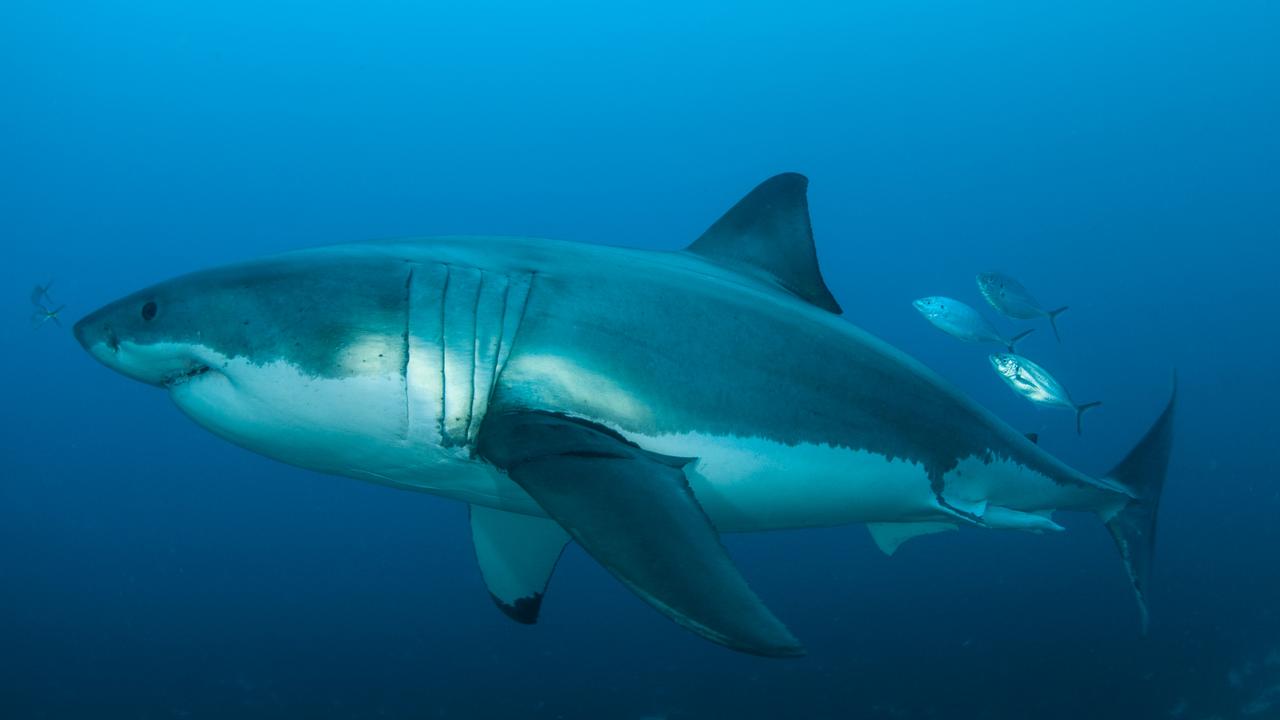‘Today is extreme risk’: World-leading research can predict shark behaviour with 90 per cent accuracy
Following the tragic series of shark deaths this year, Adelaide-based researchers say they have a solution to prevent further attacks.
World-leading research by the University of Adelaide has been able to successfully determine the risk of a shark attack the same way bushfires are predicted.
Over the past two years, Ian Dewey, the chief executive of ESPY Ocean, has been collaborating with the Adelaide Uni to develop research that can now successfully predict shark behaviour based on environmental conditions.
Mr Dewey said his research can predict a shark’s “next move” with 90 per cent accuracy using satellite imagery and artificial intelligence.
In simple terms, he said the way it works is the same way authorities are able to predict bushfires.
“We know that the odd fire turns up if you get a range of things such as dry heat, dry lightning and fuel such as dead leaves and tree branches on the ground, then we’re likely to get a bushfire,” he said.

“So, we know we’ve got sharks everywhere, we know we’ve got the conditions they might feed in and we know what will trigger them to feed.
“What we’re looking at doing is working out the triggers so we can then say, ‘this is a dangerous day. This is the day where a shark is likely to feed’.”
The long-term goal for the research is to see warnings and alerts created for different beaches and coastal spots that will tell people if there is a low-to-high risk of sharks feeding in the area on any particular day.
“We want to put that structure in place to warn people so they can look at their phone and say, ‘no, today is the day we won’t swim, or today is the day we change where we swim’,” he said.
The AI software can predict weather patterns and water temperatures that become factors in changing behaviour of sharks from swimming normally to becoming an apex predator.
“If you go swimming off the Adelaide beaches, or on the West Coast, there are sharks out there, but whether they’re going to attack or not, is determined by a number of factors,” he said.

“And it’s a matter of being able to predict those factors so we know that, today is the day you shouldn’t go swimming.”
Mr Dewey’s two-years of research has been funded by the NSW Department Of Primary Industries, and says he is in talks with the SA government about using his research here.
In a statement, a government spokesperson said that they had been advised by ESPY Oceans of their research and that they were open to new safety measures.
“We will always look at new technology and options that have the potential to improve safety and are appropriate for our state’s conditions,”
“The research and development into this type of technology is ongoing and further testing needs to be completed before any application to South Australia’s vast and remote coastlines can be considered.
“The State Government continues to provide aerial patrols along metropolitan beaches, with monitoring brought forward two weeks during the summer months.”
More Coverage
Originally published as ‘Today is extreme risk’: World-leading research can predict shark behaviour with 90 per cent accuracy





